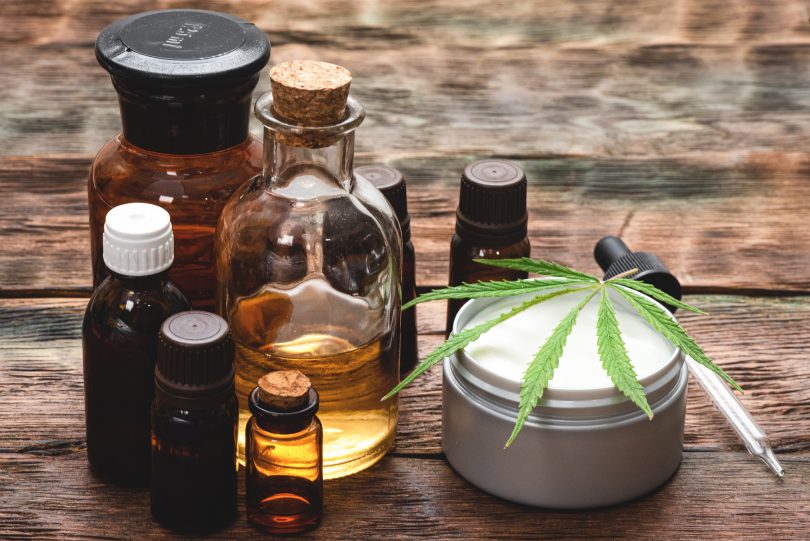Could the answer to the challenges facing CBD regulators on both sides of the Atlantic be one and the same?
As the CBD industry takes all before it regulators on both sides of the Atlantic struggle to tether it. In the U.S., the Food and Drug Administration has warned of the ‘real-risk’ posed by CBD and seem to want to regulate it as a drug.
While regulators overseeing European Union businesses focus on CBD as food supplement – the U.K. Food Standards Agency (FSA) having resolved this dilemma three years ago.
CLICK HERE or use the sign-up form below to subscribe to the CBD Business Weekly Newsletter.
CBD; ‘Safety Risks’
Last month, the FDA pulled no punches when it said it was ‘concerned that people may mistakenly believe that trying CBD ‘can’t hurt’. “The agency wants to be clear that we have seen only limited data about CBD’s safety and these data point to real risks that need to be considered.”
It goes on to say that in recognizing GW Pharmaceuticals isolate CBD drug Epidiolex, it identified ‘certain safety risks including the potential for liver injury’. It also highlights two other areas of concerns with CBD, namely drug interactions and male reproductive toxicity, referring to scientific studies in both cases.
Its statement posed a number of unanswered questions saying it doesn’t know, the impact of ‘sustained’ use and CBD’s impact on ‘developing brains’.
However, over on the other side of the Atlantic a similar exercise into the efficacy of CBD reached a different conclusion. Whilst a report to the FSA by The Committee on Toxicity of Chemicals in Food highlighted similar potential medical issues, it was less concerned.
FDA on CBD: ‘Well-Tolerated’
“CBD is generally well-tolerated with a good safety profile. Reported adverse effects may be as a result of drug-drug interactions between CBD and patients’ existing medications,” it said.
This is more in tune with The World Health Organization, which says, ‘to date, there is no evidence of public-health related problems associated with the use of pure CBD’.
Adding, “CBD is generally well tolerated and has a good safety profile”.
The FDA’s decision to treat CBD as a drug and not a food supplement is already having ramifications on the vibrancy of the market. Estimates that the CBD market would grow from its current $1 billion a year to $22 billion in 2024 are being questioned.
Its stance is causing consternation amongst those who want to see the hemp and CBD industry prosper – as well as the millions of people who need CBD for help with their medical conditions.
Some politicians, such as Senate Majority Leader Mitch McConnell, are pressing for the decision to be taken out of the FDA’s hands. He’s supported by Steve Mister, President & CEO, Council for Responsible Nutrition, who highlights the differences between prescription drug, and supplement levels and says the FDA ‘has abdicated its regulatory oversight’.
He says it is time for them to announce a legal pathway to market for ‘CBD-containing supplements’. As mentioned earlier, Epidiolex is an isolate drug and there’s a great difference between it and CBD sourced from an on-line or high-street retailer.
Food Or A Drug?
Justin Singer, co-founder and CEO of CBD-infused supplement brand Caliper Foods expanded on this in an interview with the lifestyle magazine Observer. He said: “The FDA is failing to distinguish between the risk of CBD when used at drug levels with the risks of CBD when used at food and supplement levels.”
Mr Singer said that when the FDA mentions concern over liver injury and male reproductivity it ‘fails to note that these risks only appear at dose concentrations equivalent to 1,400 to 3,500 milligrams of CBD’. And, then points out that the average labeled CBD serving in many supplements is around 20 milligrams.
He added: “That’s like saying ‘drinking coffee is dangerous,’ when the data actually indicate drinking 70 cups of coffee is dangerous. As ever, the dose makes the poison.”
The European Commission’s position on CBD, through its Novel Food Authorisation process, is contentious, and leading industry groups are calling for it to develop a twin-track approach. CBD Isolates are widely accepted as a Novel Food as they employ a relatively new processing method.
However, opponents strongly contend that industrial hemp extracts consisting of ‘naturally occurring levels of CBD and other cannabinoids in the plant’ have been used for hundreds of years, and are not Novel.
As the FDA continues to grapple with CBD regulation, perhaps it should take a look over the Atlantic and emulate the way Europe differentiates between CBD as a food, and CBD as a drug.
For more stories like this one, subscribe to the CBD Business Weekly Newsletter.









